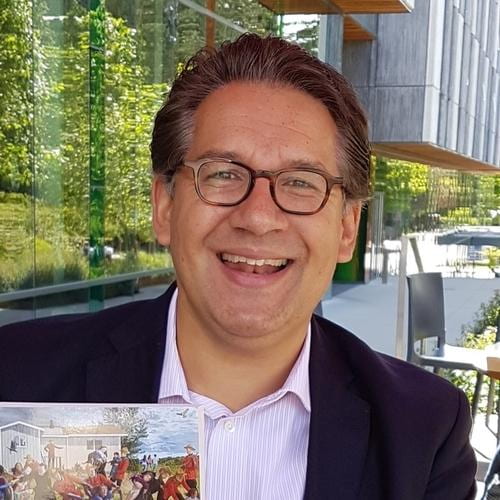
Here you will find details of my work as a Political Science Professor at the University of Guelph. As of July 2017, I am also the Guelph Research Leadership Chair for the College of Social and Applied Human Sciences. This is an initial three year position with the option of a further two year extension. This is an exciting development for me, which allows me more time and funding to meet with people around the country and on campus and develop research projects.
Much of this website relates to my research, generously funded by the Social Sciences and Research Council of Canada and the University of Guelph. Since 2007 I have been a faculty member at the University of Guelph, and I was promoted full professor in 2013. From 2002-2007 I was a Lecturer, then Senior Lecturer in the Political Studies Department at the University of Otago, New Zealand. Before this time, from 1999-2002, I was Assistant Visiting Professor at the École Supérieure de Commerce de Paris (now ESCP-Europe). I obtained my PhD in International Relations in 2001 from the London School of Economics.
In my work, I focus on Comparative Indigenous Politics in Canada, Aotearoa New Zealand, United States. I have also worked expensively in the areas of International Relations, American foreign policy, Holocaust and genocide studies, and critical race theory. My mother’s family is Trinidadian Indian and my father’s family is originally from Scotland but goes back many generations in Nova Scotia. Since these roots have been important in my upbringing and influence the direction of my work, I inevitably bring a multicultural perspective to pressing issues in political science which I hope creates a useful angle through which to assess some aspects of international and domestic politics. Please feel free to have a look and explore my articles, chapters, and books, read my blog and check out my links page. You will also find information on my research grants from the Social Science and Humanities Council of Canada.
As you will see, I have an active SSHRC Insight Grant as Principal Investigator:
“Complex Sovereignties: Theory and Practice of Indigenous-Self Determination in Settler States and the International System” (with Sheryl Lightfoot 2017-2022)
- I am also a co-applicant on two SSHRCC Partnership Development Grants:
- – “Transformative Memory: Strengthening an International Network” Co-Applicant on a SSHRCC Partnership Development Grant (Pilar Riano-Alcala at UBC is PI) 2018-21; value $197,690).
- – “Embodying Empathy: Fostering Historical Knowledge and Caring Through a Virtual Indian Residential School” Co-Applicant on a SSHRCC Partnership Development Grant (Andrew Woolford is PI) 2014-17; value $196,000).

David’s Latest Publication
Confronting the truths of Canada’s Indian Residential School system has been likened to waking a sleeping giant. In this book, David B. MacDonald uses genocide as an analytical tool to better understand Canada’s past and present relationships between settlers and Indigenous peoples. Starting with a discussion of how genocide is defined in domestic and international law, the book applies the concept to the forced transfer of Indigenous children to residential schools and the “Sixties Scoop,” in which Indigenous children were taken from their communities and placed in foster homes or adopted.
Based on archival research and extensive interviews with residential school survivors, officials at the Truth and Reconciliation Commission of Canada, and others, The Sleeping Giant Awakens offers a unique and timely perspective on the prospects for conciliation after genocide, exploring how moving forward together is difficult in a context where many settlers know little of the residential schools and the ongoing legacies of colonization, and need to have a better conception of Indigenous rights. It offers a detailed analysis of how the TRC approached genocide in its deliberations and in the Final Report.
Crucially, MacDonald engages critics who argue that the term genocide impedes understanding of the IRS system and imperils prospects for conciliation. By contrast, this book sees genocide recognition as an important basis for meaningful discussions of how to engage Indigenous-settler relations in respectful and proactive ways.



